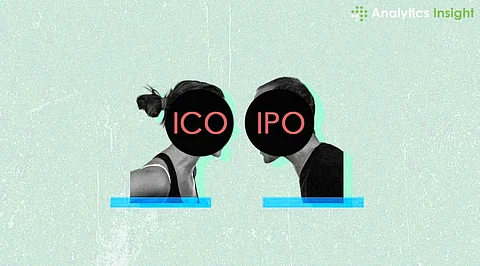

In the world of finance, two terms that often garner attention from investors are ICO and IPO. While they may sound similar, ICO (Initial Coin Offering) and IPO (Initial Public Offering) represent two distinct methods of raising capital and investing in companies. Understanding the differences between ICOs and IPOs is crucial for investors looking to navigate the complexities of the financial markets. In this article, we'll explore the fundamentals of ICOs and IPOs, compare their characteristics and implications for investors, and provide insights into the factors to consider when evaluating investment opportunities in both arenas.
Initial Coin Offerings (ICOs) are a popular way for blockchain and cryptocurrency startups to raise money through fundraising.In an ICO, companies issue digital tokens or coins to investors in exchange for funding. These tokens typically represent ownership rights, utility, or access to the company's products or services. ICOs gained popularity during the cryptocurrency boom of the late 2010s, offering investors the opportunity to participate in the growth of blockchain-based projects. However, ICOs are often associated with regulatory uncertainties, fraud, and market manipulation, making them a high-risk investment option for investors.
An Initial Public Offering (IPO) is the process through which a private company becomes publicly traded by offering its shares to the public for the first time. Companies opt for an IPO to raise capital, facilitate liquidity for existing shareholders, and gain access to the public equity markets. IPOs are regulated by securities laws and overseen by regulatory bodies such as the Securities and Exchange Commission (SEC) in the United States. Investing in IPOs allows investors to participate in the growth of established companies and gain exposure to new investment opportunities. However, IPOs can be volatile, with prices often fluctuating significantly in the initial trading days.
While ICOs and IPOs both involve raising capital from investors, they differ significantly in terms of structure, regulation, and investor protections. ICOs are typically conducted by startups and blockchain projects seeking to raise capital quickly without the regulatory burdens associated with traditional fundraising methods. In contrast, IPOs are governed by stringent regulatory requirements, including disclosure obligations, financial reporting standards, and investor protections. Despite their differences, both ICOs and IPOs offer investors the opportunity to invest in early-stage companies and participate in their growth potential.
Investing in ICOs and IPOs entails different risk and reward profiles for investors. ICOs are often considered high-risk, high-reward investments due to their speculative nature, lack of regulatory oversight, and potential for fraud. While some ICOs have generated significant returns for early investors, many others have failed to deliver on their promises, resulting in substantial losses for investors. In contrast, IPOs are generally perceived as lower-risk investments, as companies seeking to go public are required to undergo rigorous due diligence, financial scrutiny, and regulatory review. However, IPOs may still carry inherent risks, including market volatility, valuation uncertainties, and post-listing price fluctuations.
When evaluating investment opportunities in ICOs and IPOs, investors should conduct thorough due diligence and consider various factors, including the company's business model, management team, market potential, competitive landscape, and regulatory compliance. For ICOs, investors should assess the project's whitepaper, technology, token economics, community engagement, and legal framework. For IPOs, investors should analyze the company's prospectus, financial statements, industry trends, growth prospects, and valuation metrics. Additionally, investors should consider their risk tolerance, investment objectives, and time horizon when deciding whether to invest in ICOs or IPOs.
In conclusion, ICOs and IPOs offer investors distinct opportunities to participate in the growth of early-stage companies and gain exposure to new investment prospects. While ICOs provide access to the emerging world of cryptocurrency and blockchain projects, they carry higher risks and uncertainties compared to IPOs. On the other hand, IPOs offer investors the chance to invest in established companies with a track record of performance and regulatory compliance.
Join our WhatsApp Channel to get the latest news, exclusives and videos on WhatsApp
_____________
Disclaimer: Analytics Insight does not provide financial advice or guidance. Also note that the cryptocurrencies mentioned/listed on the website could potentially be scams, i.e. designed to induce you to invest financial resources that may be lost forever and not be recoverable once investments are made. You are responsible for conducting your own research (DYOR) before making any investments. Read more here.
